The New York Times has published a major investigation into the abuse faced by women from Uganda and Kenya working as domestic servants in Saudi Arabia. Many of them endure withheld wages and food deprivation, while others become victims of rape, beatings, and severe mistreatment. Some even die under mysterious circumstances, officially declared as natural causes. Journalists interviewed dozens of people and concluded that the recruitment system for African maids in Saudi households turns them into commodities—on some recruitment agency websites, their photos are even accompanied by an "Add to Cart" button. Their rights are barely protected, and authorities appear unwilling to intervene, as this form of labor migration generates significant revenue.
According to the Saudi Arabian government, approximately 500,000 migrants from Kenya and Uganda are currently working in the country, the majority of whom are women employed in domestic labor—cooking, cleaning, and caring for children in Saudi households. At first glance, such work does not appear dangerous, yet over the past five years, 274 Kenyan migrant workers have died in Saudi Arabia, including 55 in the past year alone—twice as many as the previous year. Most of the victims are women.
Kenya and Uganda have been experiencing prolonged economic downturns, making remittances from citizens working abroad a crucial part of their economies. In response, recruitment agencies have flourished, luring women with promises that just a few years of work in Saudi Arabia will allow them to provide for their families. These agencies are often linked to politicians and government officials. In Kenya, one such agency is owned by a member of the labor committee in the lower house of parliament, while in Uganda, another is operated by a member of the ruling party, whom the media describe as the president's brother. In Saudi Arabia, similar agencies are also tied to powerful figures, including members of the royal family and government officials.

Training courses for domestic workers in Uganda.

Domestic worker training courses in Kampala. Classes may include Arabic language lessons as well as practical skills, such as how to operate a washing machine.
The system is structured as follows: employers pay Saudi recruitment agencies for domestic worker placement services, which in turn collaborate with recruitment agencies in Uganda or Kenya. In recent years, demand for workers from East Africa in Saudi Arabia has surged, primarily due to their low cost. The country follows a wage hierarchy for foreign workers, and migrants from Kenya and Uganda occupy the lowest tier, earning just $200–$250 per month. Additionally, their labor rights are less protected compared to migrants from other countries, largely due to conflicts of interest among politicians and officials involved in the business.
On paper, working conditions for East African domestic workers in Saudi Arabia appear relatively fair: working hours are capped at 10 hours a day, with at least one day off per week, and salaries are paid through an online system. Furthermore, the government has increased penalties for unscrupulous employers and simplified the process of resignation for workers, according to a statement from Saudi Arabia’s Ministry of Human Resources to The New York Times. However, in practice, if a woman faces issues, she is left to deal with them alone. "We receive complaints every day," says Milton Turyasima, assistant commissioner at Uganda’s Ministry of Gender, Labor, and Social Development.
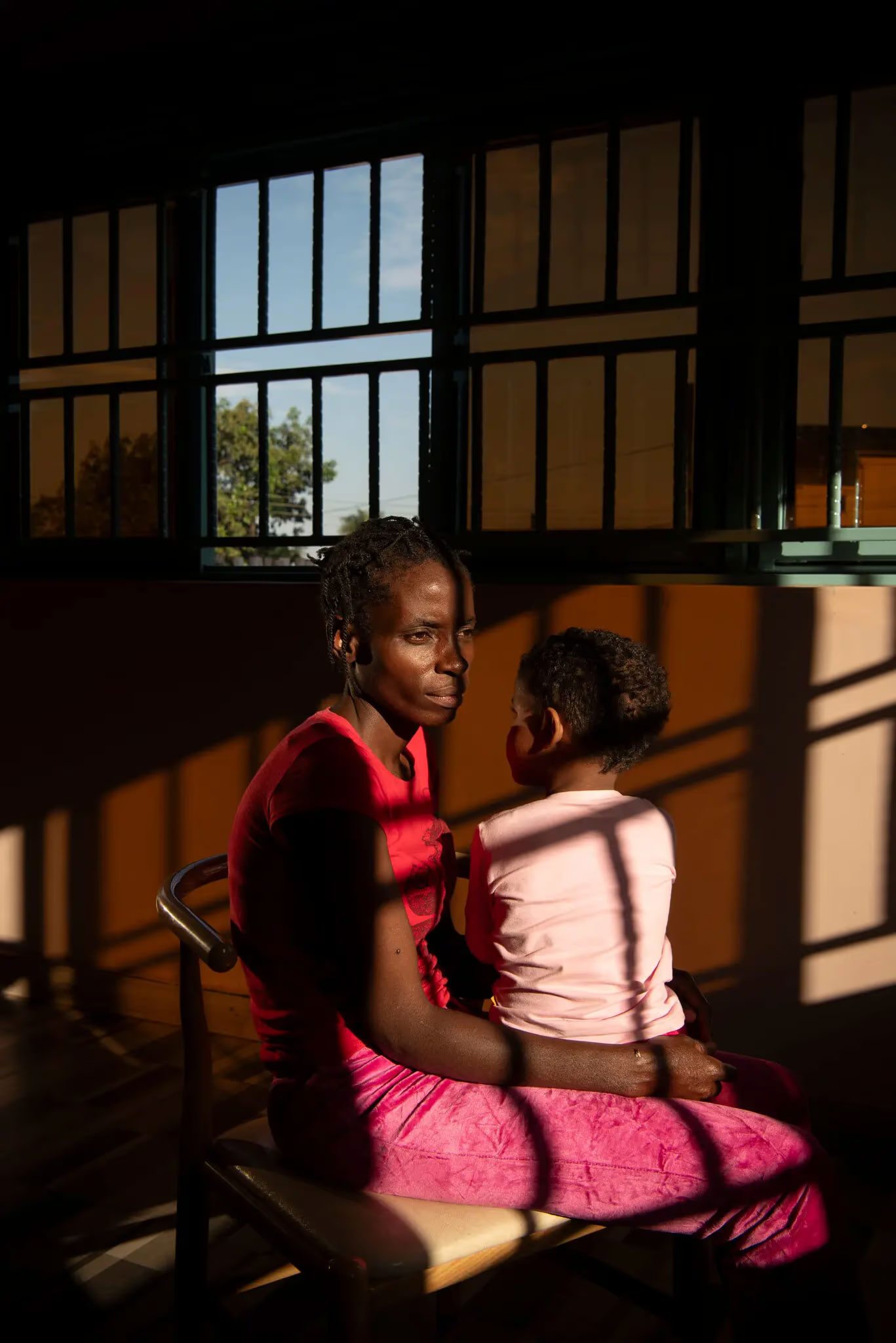
Farida Nassanga and her child in Kampala.
Farida Nassanga left Uganda in 2019, hoping to earn $200 per month in Saudi Arabia. At first, the job seemed ordinary, but one day, the head of the household beat and raped her. Soon after, Farida became pregnant, and when the man's wife found out, she was immediately sent back to her home country. Now, she lives in Uganda in a single room with her mother and three children, the youngest of whom was born as a result of the assault. Farida has received no compensation for what she endured in Saudi Arabia.
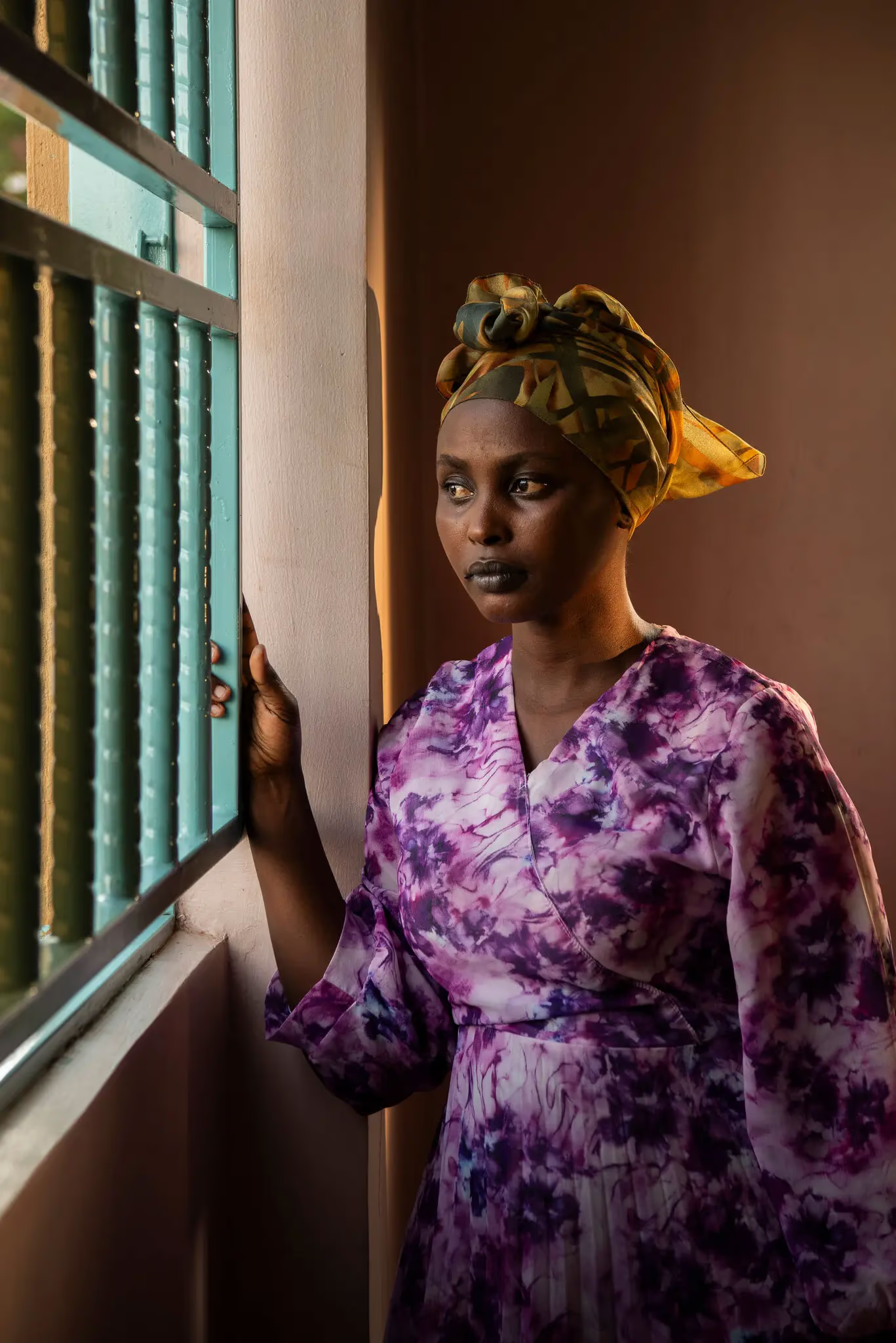
Mary Nsimente was locked on the rooftop under the scorching sun as punishment for asking to be paid her earned wages.
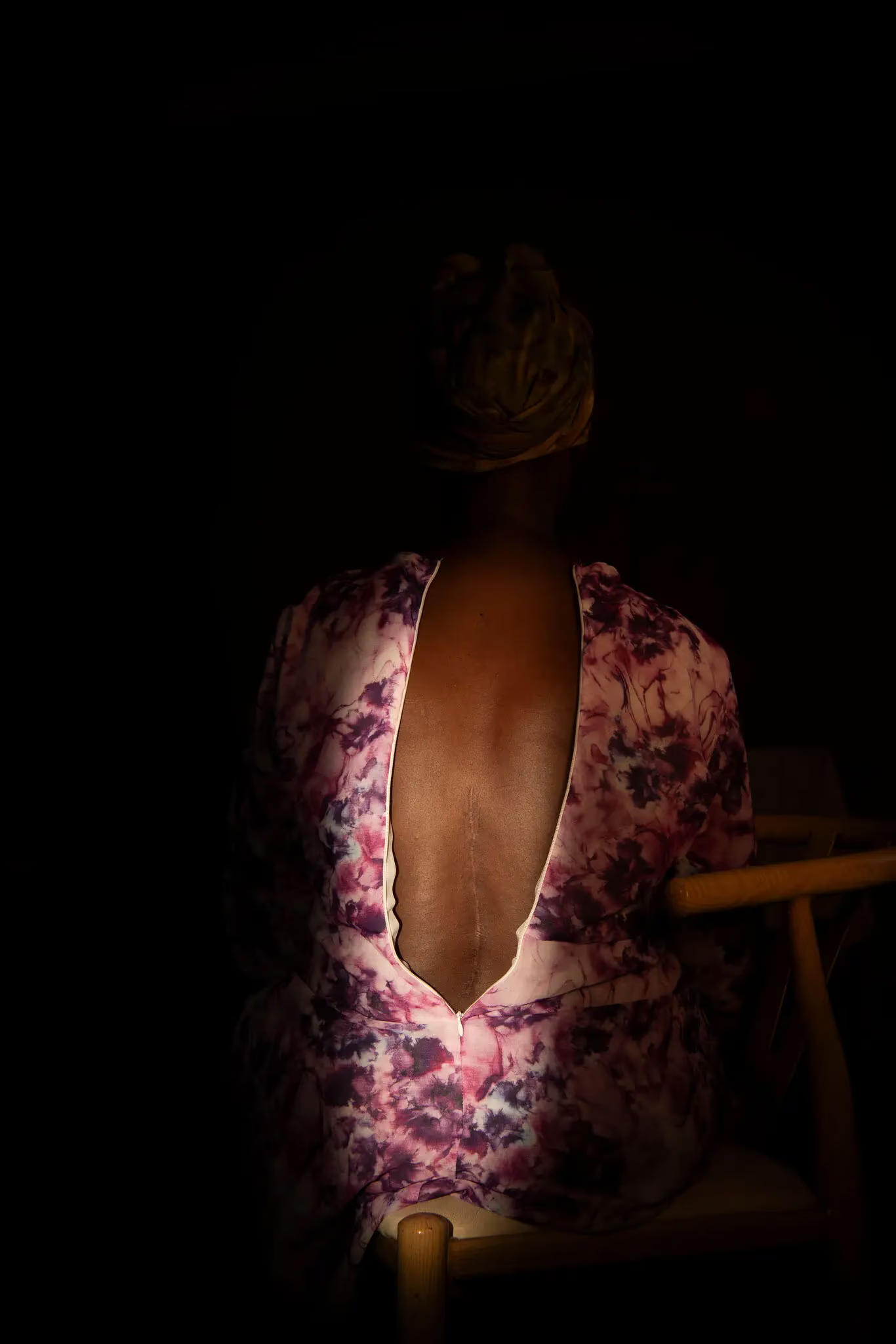
A scar on Mary Nsimente's back from spinal surgery after she jumped off the rooftop.
Mary Nsiimente, a single mother from Uganda, traveled to Saudi Arabia in search of work. She was employed by a family with five children who, according to her, beat her with a stick and threw bleach into her eyes. Their father withheld her wages, and when Mary repeatedly asked for her money, her employers locked her on the rooftop of a three-story house. Believing she would die from the heat and dehydration, she attempted to escape—jumping off the roof and suffering a severe spinal injury. Neighbors helped her reach a hospital, but when she told doctors and the police what had happened, they simply advised her to return to work. Mary refused, and the Saudi recruitment agency then sent her back to Uganda. Due to her injuries, she can no longer work.
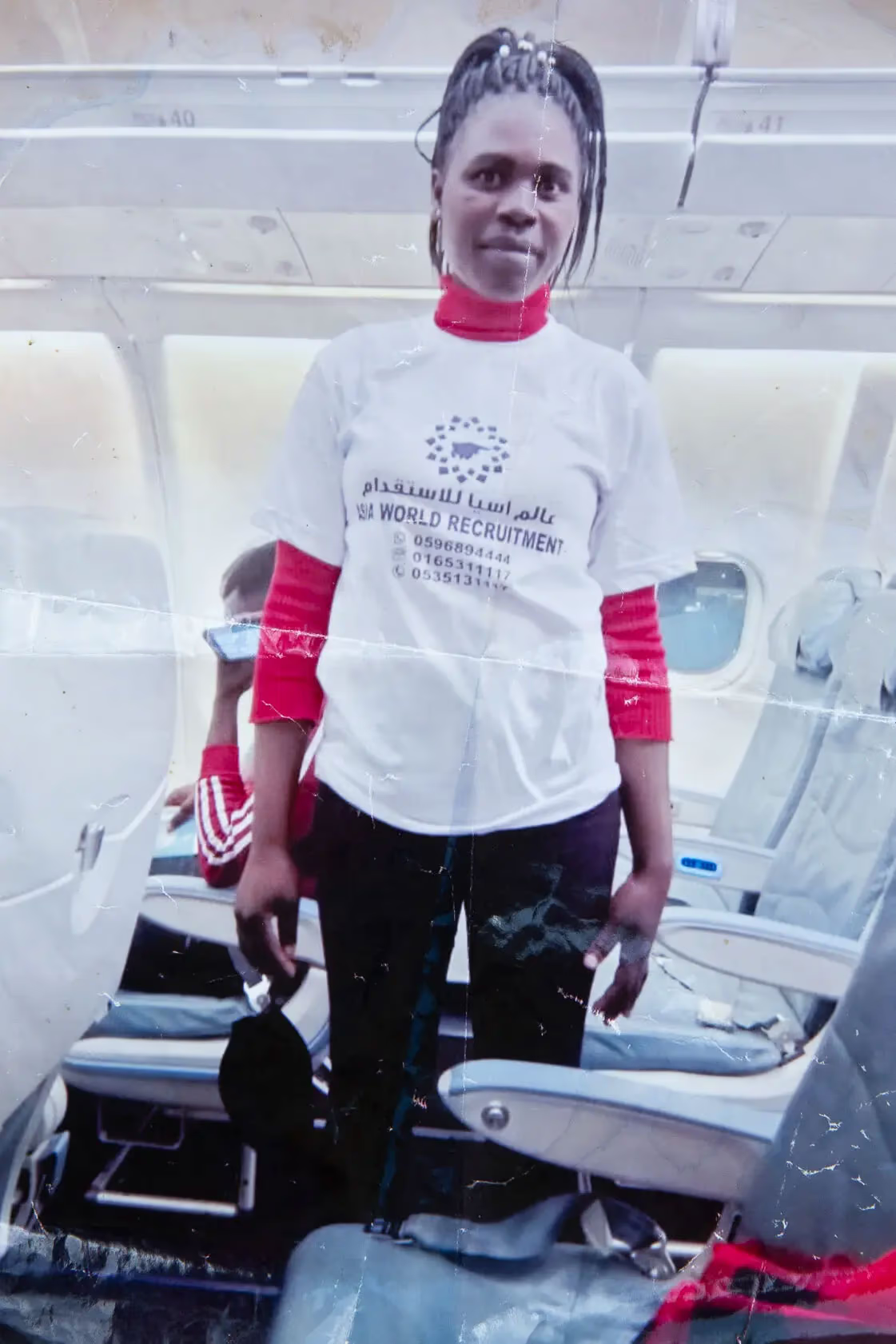
Eunice Achieng on the day she left for Saudi Arabia. She was later found dead in a water tank on the rooftop of the house where she worked.
In 2022, Kenyan domestic worker Eunice Achieng made a frantic call to her relatives, telling them that her Saudi employer had threatened to kill her and dump her body in a water tank. "She was screaming, Please, come save me!" her mother recalls. Some time later, Eunice’s body was indeed found in a water tank on the rooftop of the house where she worked. Forensic experts stated that the extent of decomposition made it impossible to determine the exact cause of death. Saudi police classified the incident as a "natural death."
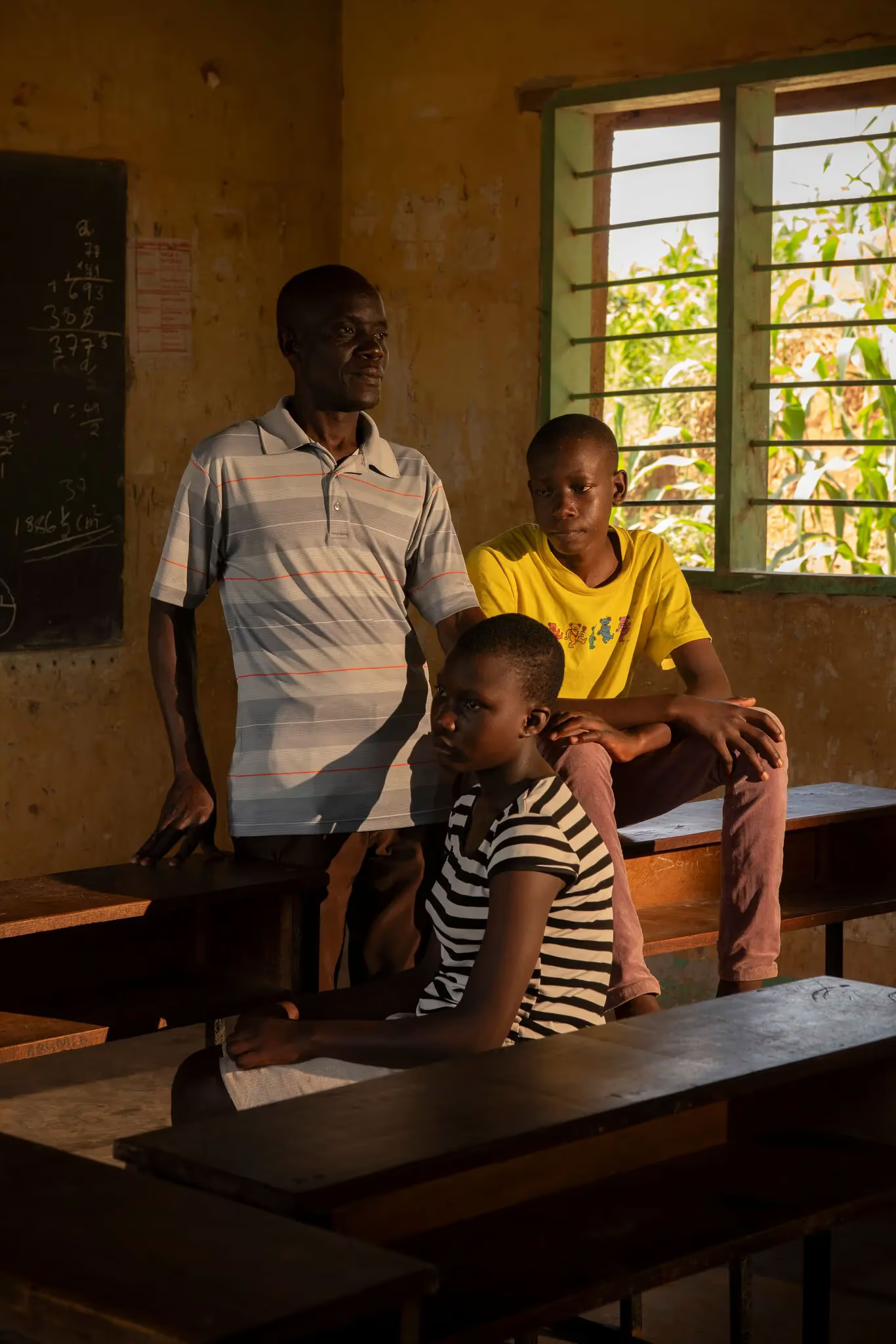
Aisha Mime’s husband and two sons.
Saudi authorities also claimed that Aisha Mime from Uganda had died of natural causes. However, her husband received a call from her employer, who gave him a choice: either he could receive Aisha’s body, or he would be sent $2,800—the amount of her unpaid wages. "I told him that regardless of whether you send me the money or not, I want my wife’s body," the man recalls. When he finally received it, he discovered that Aisha had three broken ribs, burns from an electric shock device, and multiple bruises.
The New York Times also recounts the stories of other women from Kenya and Uganda who suffered after working in Saudi Arabia. Mary Nyambura claims her employers threw her off a balcony—she is now confined to a wheelchair. Josephine Uchi said she managed the household and cared for 12 members of a Saudi family while being allowed only four hours of sleep per night. According to Margaret Mueni, her employer told her he had "bought" her, confiscated her passport, and deprived her of food. Mwanakombo Ngao was admitted to a psychiatric hospital after returning from Saudi Arabia—she does not remember what happened to her while she was employed there.
Under Saudi law, if a foreign worker needs to return home, the cost of repatriation should be covered by either the employer, the recruitment agency, or the Saudi government. However, in practice, this rule is often ignored. In 2022, Kenyan domestic worker Hannah Njeri Miriam lost her job and sought help from Sakan, a company contracted by Saudi authorities to provide housing and legal support for migrant workers in distress. Hannah hoped the center would assist her in returning to Kenya, but instead, she was told she could only leave after paying $300. Shortly afterward, her family was informed that Hannah had died while attempting to escape from the Sakan center, reportedly in an accident.
A spokesperson for Saudi Arabia’s Ministry of Labor told The New York Times that authorities had terminated their contract with Sakan and transferred the management of assistance centers for foreign workers to the recruitment agency Smasco. However, the situation appears unchanged. Three Kenyan women currently in a Smasco center stated that they could only return home if they paid—not $300, but now around $400. "It’s a cycle of abuse that no one is addressing," says Kenyan lawyer Stephanie Marigu.
Working to Death

